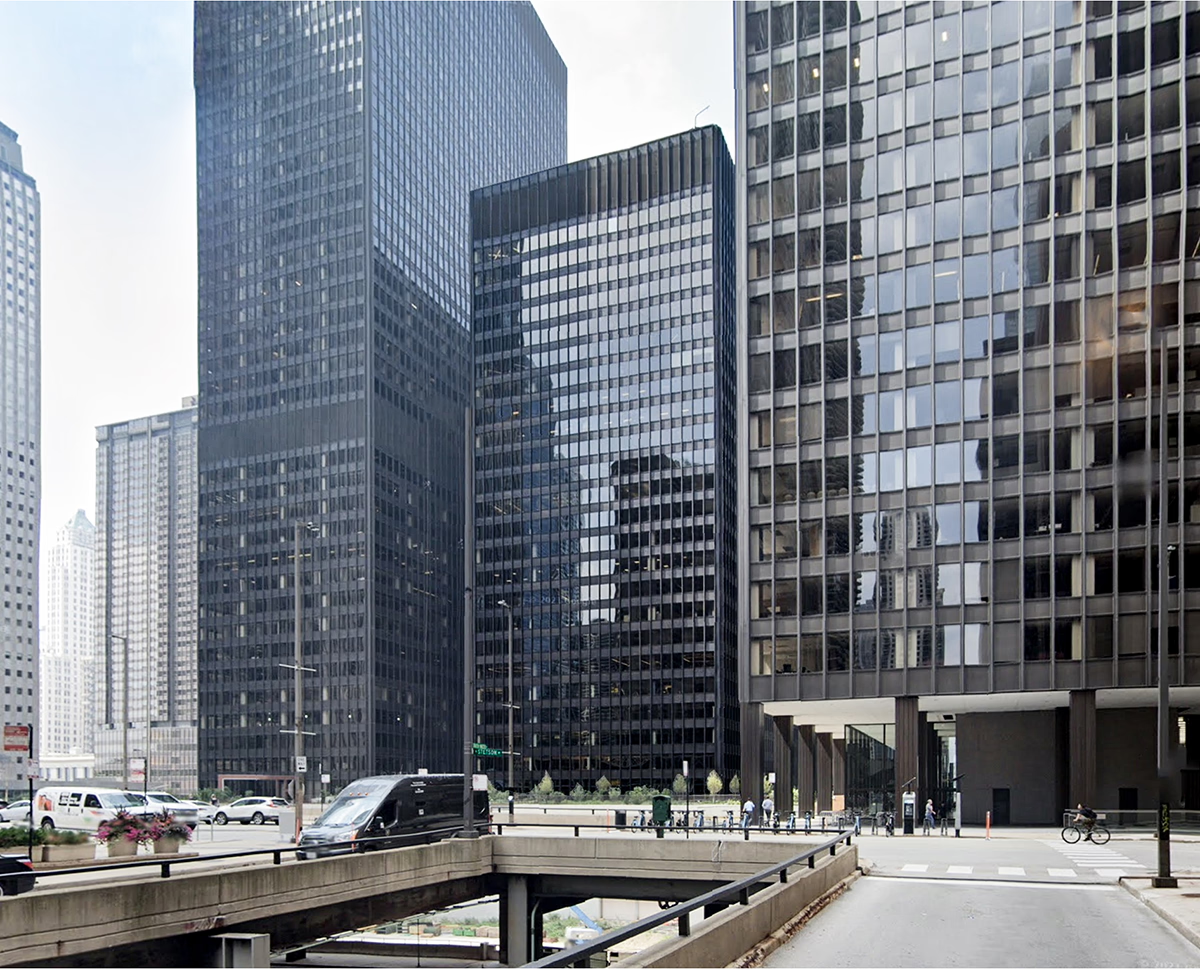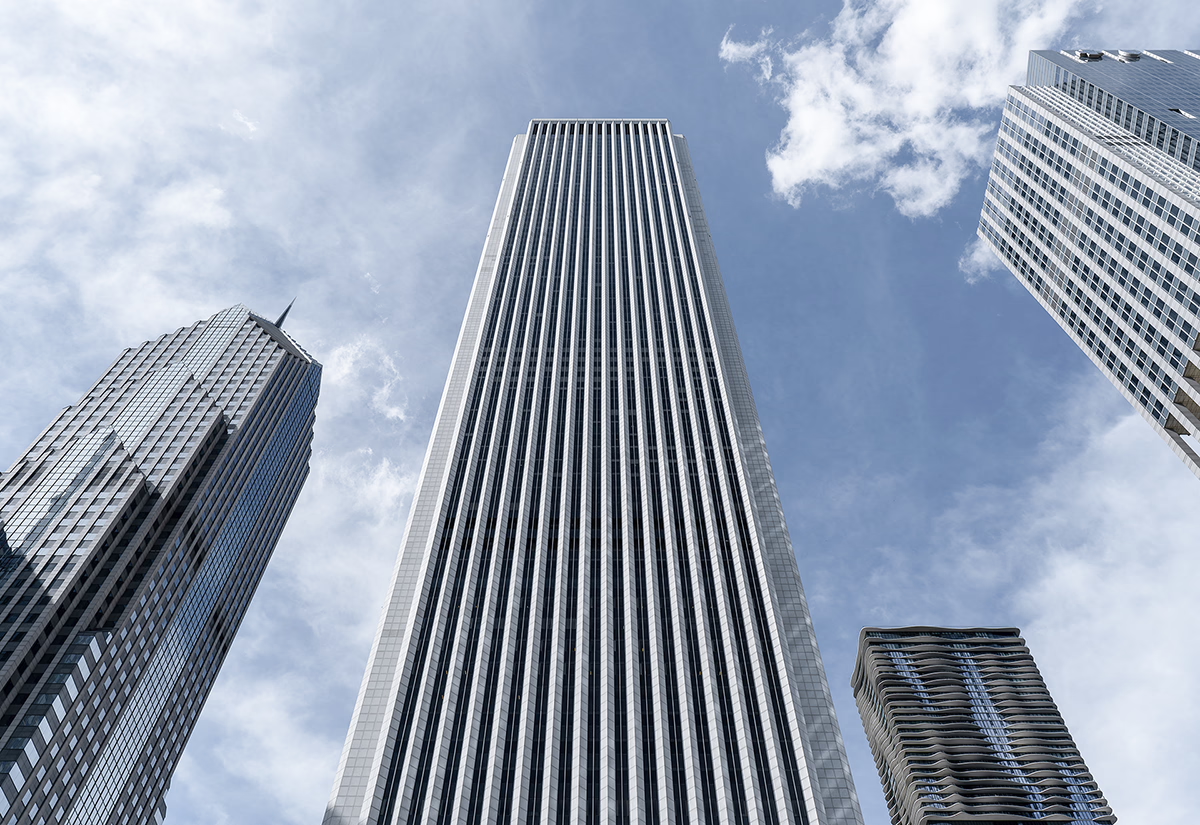Michigan Plaza North vs Aon Center


Comparing the Michigan Plaza North and the Aon Center is interesting because they both rise in Chicago, IL, yet they were conceived by two different design teams, Fujikawa Johnson & Associates and Edward Durell Stone, and were completed at different points in time. They were finished more than 8 years apart.
This contrast within the same city allows us to see how different creative minds interpreted the evolving needs of Chicago across time.
Let's take a closer look!
Height & Size
The Aon Center is clearly the larger tower of the two, both in terms of height and number of floors. It rises to 1135ft (346m) with 83 floors above ground, while the Michigan Plaza North reaches 335ft (102m) with 25 floors above ground.
Of course, each project may have faced different briefs or regulatory constraints, which we don't really know about and could also explain the outcome.
Architectural Style
Both the Michigan Plaza North and the Aon Center were designed in line with the aesthetic conventions of the International Style style.
Both buildings were completed when the International Style style was already past its peak. This makes them feel like late echoes of the movement, more reflective of continuity or nostalgia than of cutting-edge design at the time.
Uses
Both the Michigan Plaza North and the Aon Center were designed to serve as commercial towers, and that has remained their main use since their completion, serving similar roles in the urban fabric.
Both towers provide significant parking capacity, with Michigan Plaza North offering 565 spaces and the Aon Center offering 679.
Structure & Facade
The two towers rely on different structural systems, reflecting distinct engineering strategies.
The Michigan Plaza North uses a Frame structural system, which relies on a regular grid of columns and beams to sustain its weight, while the Aon Center uses a Framed Tube In Tube system, that combines a strong central core with a perimeter tube of columns.
Yet, when it comes to their facade, they both employed the same solution, a Curtain Wall facade.
A curtain wall is a non-load-bearing facade hung from the structural frame. It is anchored to floor slabs and transfers only its own weight and wind loads, allowing for sleek, glassy exteriors.
| Michigan Plaza North | Aon Center | |
|---|---|---|
| Fujikawa Johnson & Associates | Architect | Edward Durell Stone |
| 1980 | Construction Started | 1970 |
| 1981 | Year Completed | 1973 |
| International Style | Architectural Style | International Style |
| Commercial | Current Use | Commercial |
| 25 | Floors Above Ground | 83 |
| 3 | Floors Below Ground | 5 |
| 102 m | Height (m) | 346 m |
| Frame | Structure Type | Framed Tube In Tube |
| Concrete | Vertical Structure Material | Steel |
| Concrete | Horizontal Structure Material | Concrete |
| No | Facade Structural? | Yes |
| Glass, Steel, Aluminum | Main Facade Material | [ |
| Metropolitan Structures Inc | Main Contractor | Turner Construction |
| Metropolitan Structures Inc | Developer | Standard Oil Company Of Indiana |
| Alfred Benesh And Company | Structural Engineer | Perkins & Will |
| IL | State | IL |
| Chicago | City | Chicago |
| 225 North Michigan Avenue | Address | 200 E.Randolph Street |